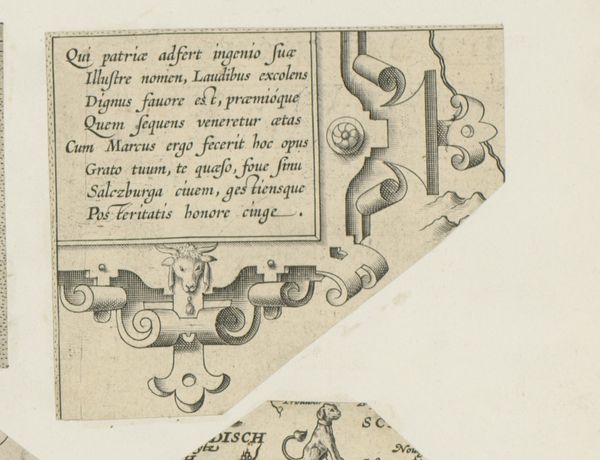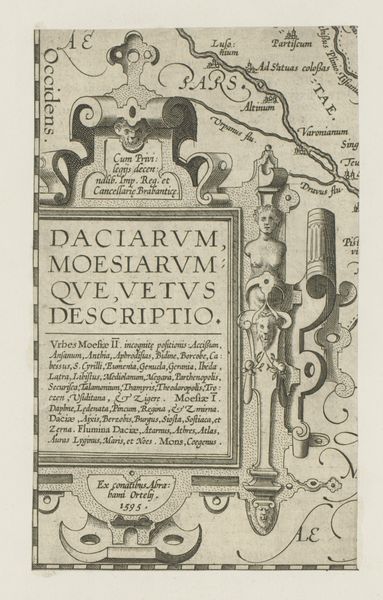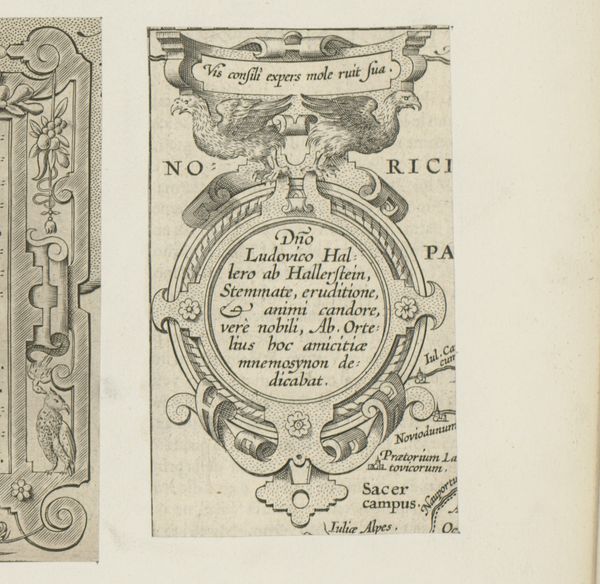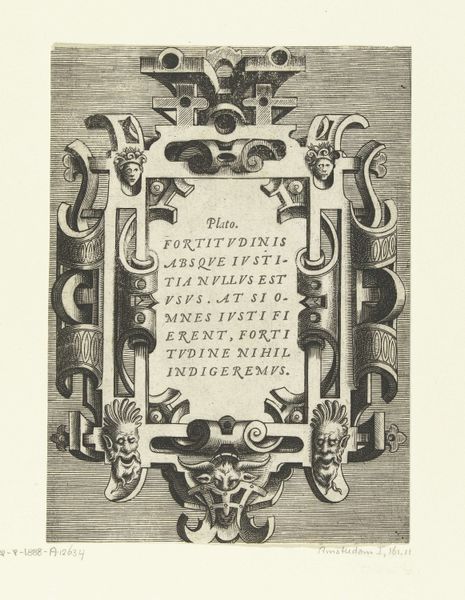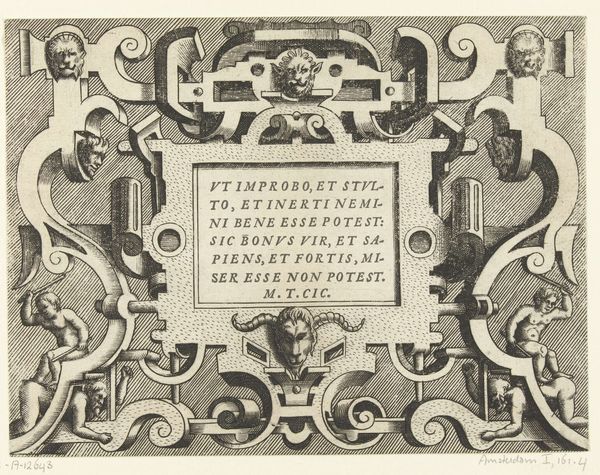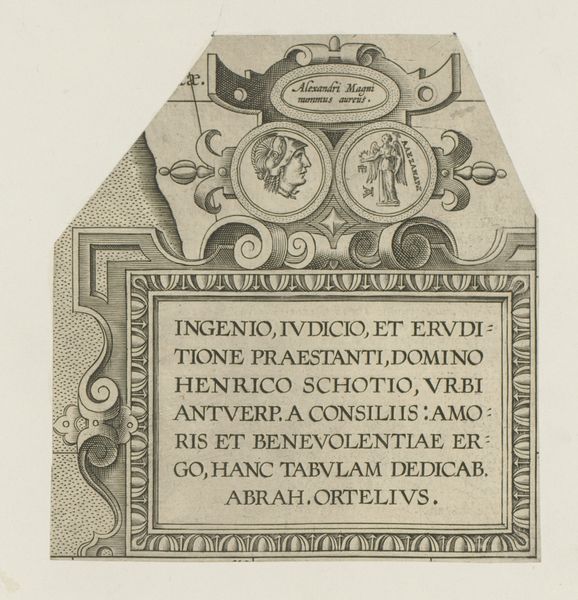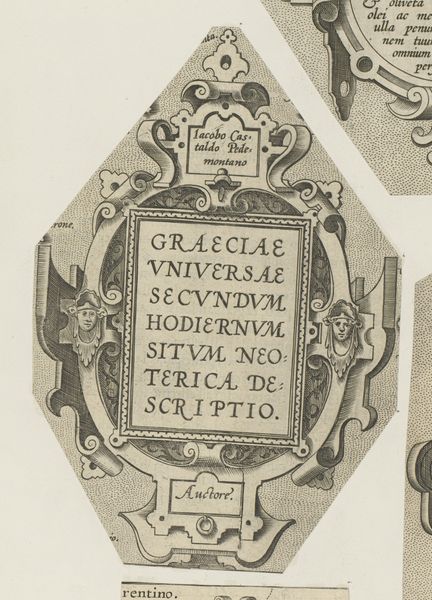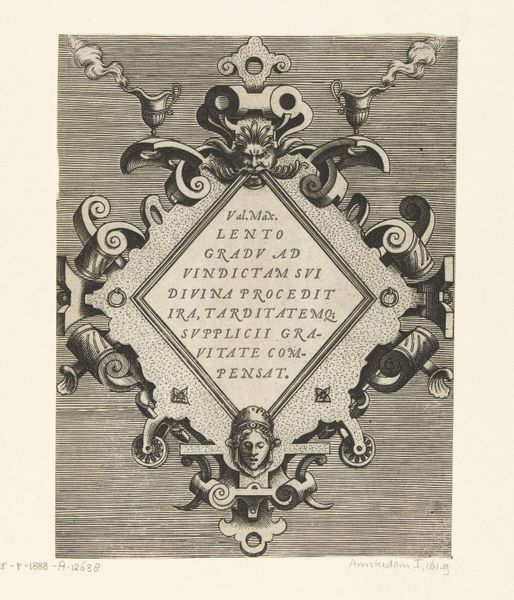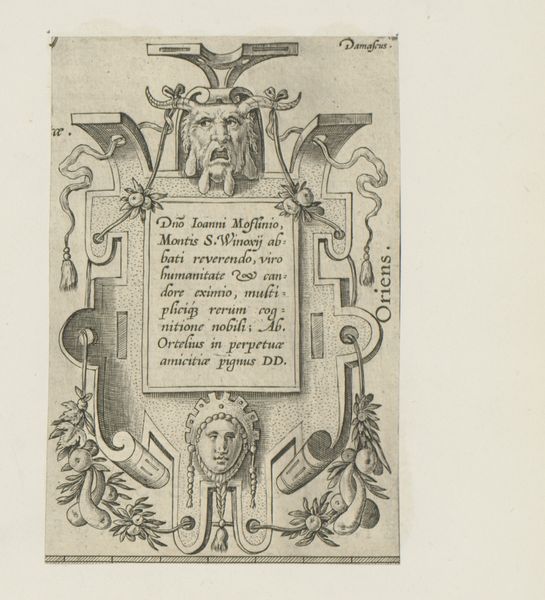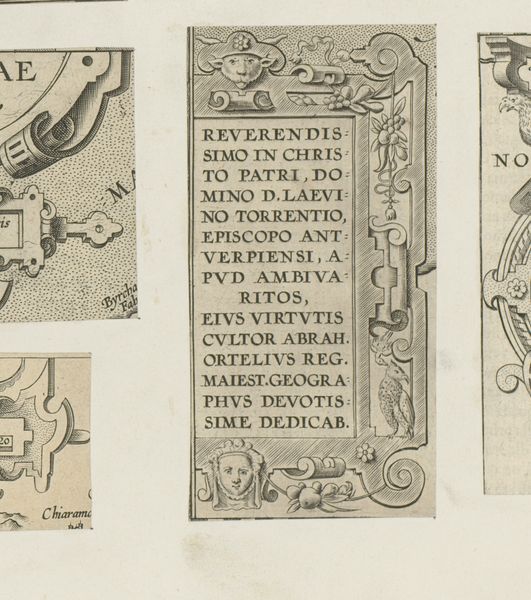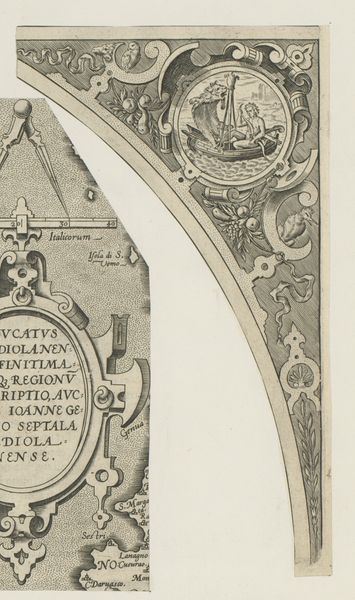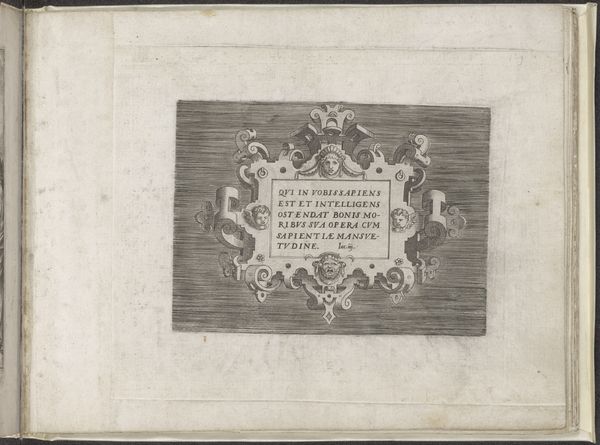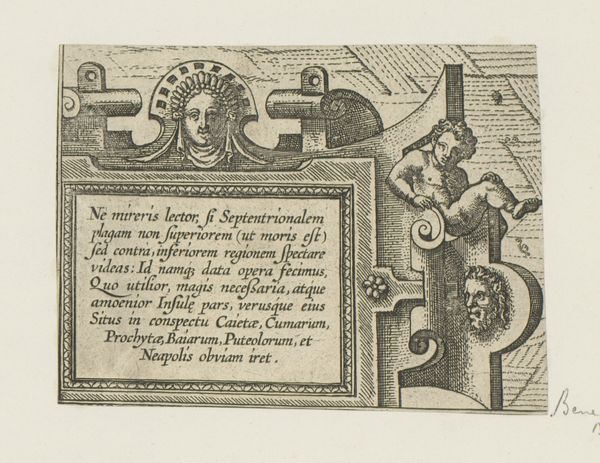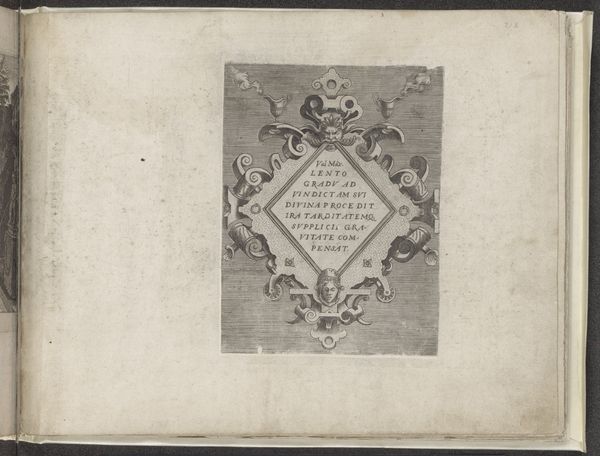
graphic-art, print, engraving
#
graphic-art
# print
#
11_renaissance
#
decorative-art
#
engraving
Dimensions: height 110 mm, width 136 mm
Copyright: Rijks Museum: Open Domain
Editor: Here we have "Rectangular Cartouche with Animal Head and Fruit Garland," an engraving dating back to 1590, made by an anonymous artist. There's a real density to the detail, a kind of organized chaos. It's decorative, but somehow unsettling too. What stands out to you about its visual qualities? Curator: Observe how the artist uses the lines to create texture and depth. Notice the contrasting areas of dense hatching with the smoother surfaces, guiding the viewer’s eye through a structured space. The composition hinges on the interplay between organic forms—fruit, animal head—and geometric elements. How does the symmetry, or lack thereof, affect your interpretation? Editor: I hadn't really noticed that, but it feels as if they deliberately skewed it; it lends a sense of movement. The cartouche form is quite rigid, yet the decorative elements seem to push against that structure. Curator: Precisely. This controlled tension between form and ornament elevates it beyond mere decoration. The precision of the engraving allows us to appreciate the artist's mastery of line and the subtleties of tonal variation. Consider the function of such an ornament: does the inscription enhance or distract from the overall design? Editor: It adds to the information it is trying to convey. But thinking about what you have both observed here is great. I would have originally just glazed over this piece, I realize now. Curator: Yes, I have come to appreciate art pieces, after really examining them in close detail. I feel you have gained valuable insight for decoding a work.
Comments
No comments
Be the first to comment and join the conversation on the ultimate creative platform.
